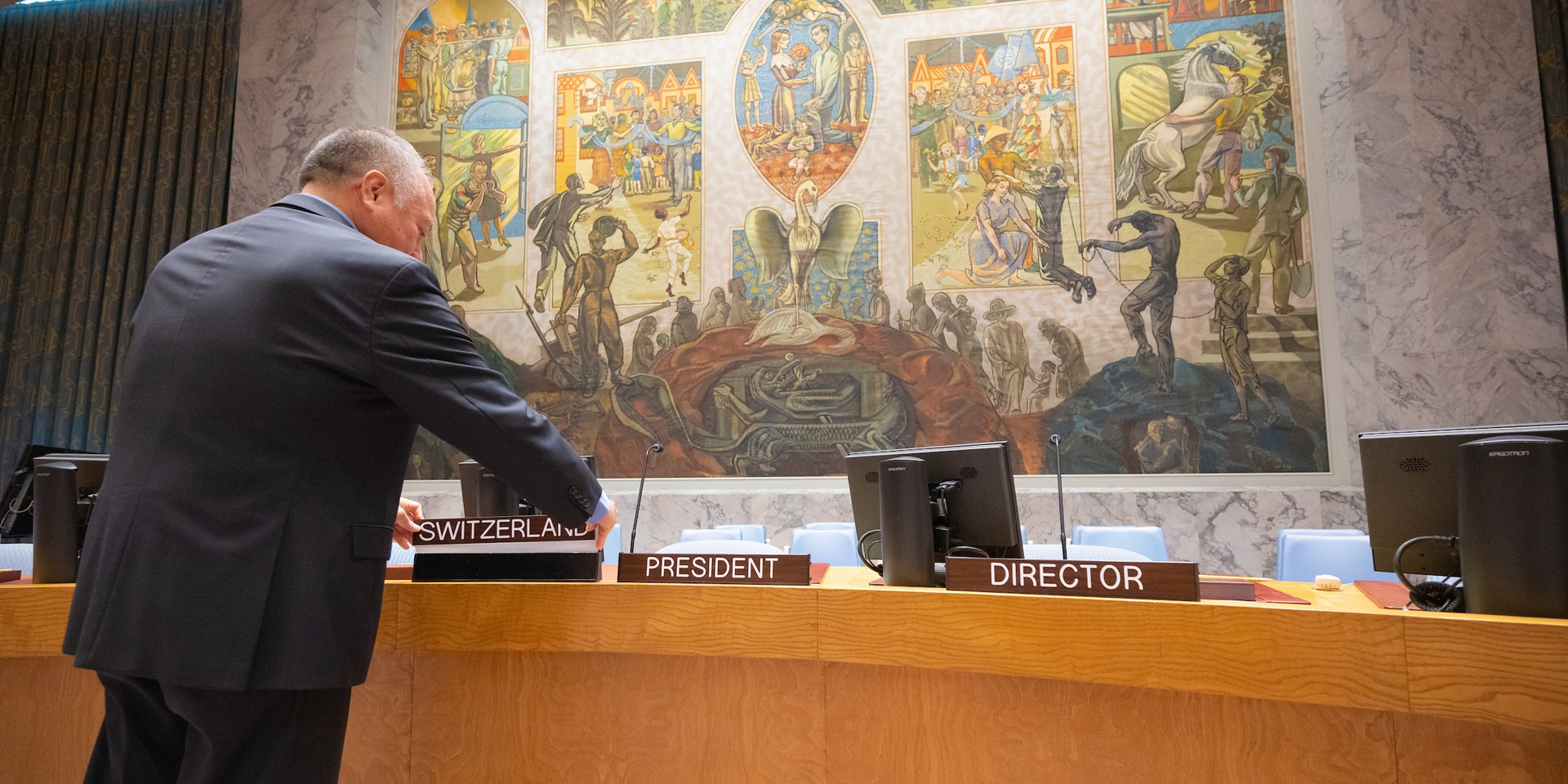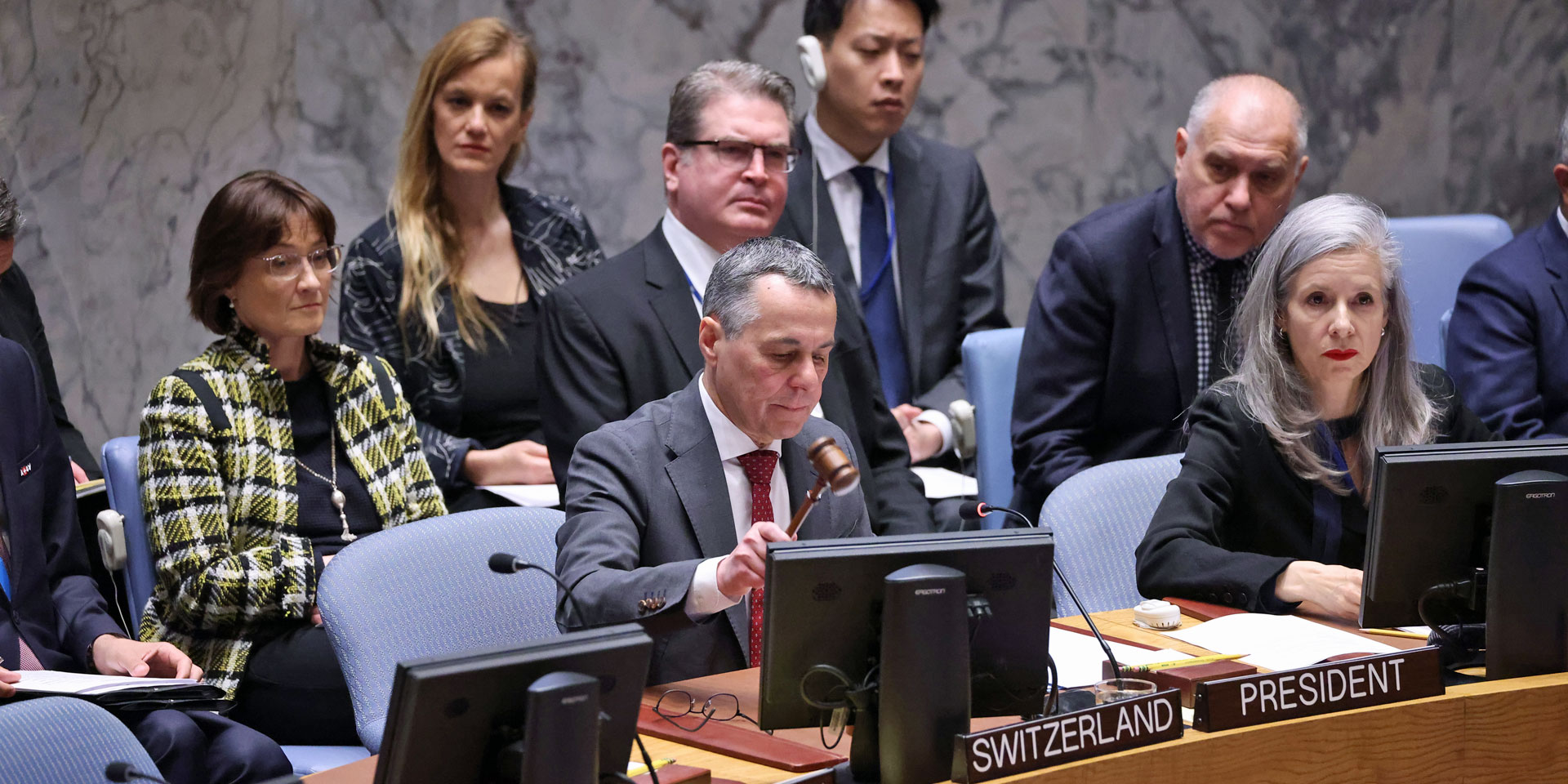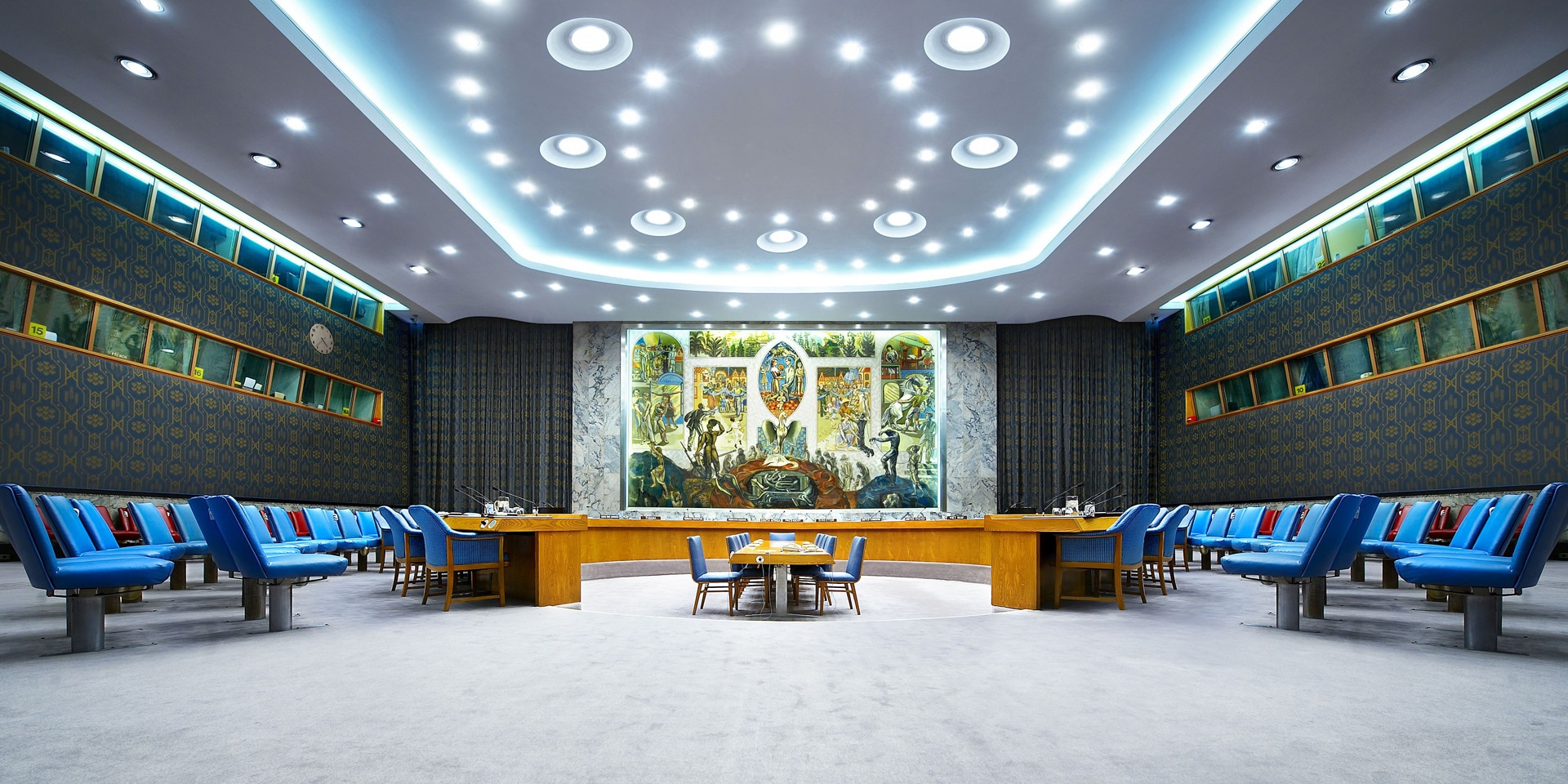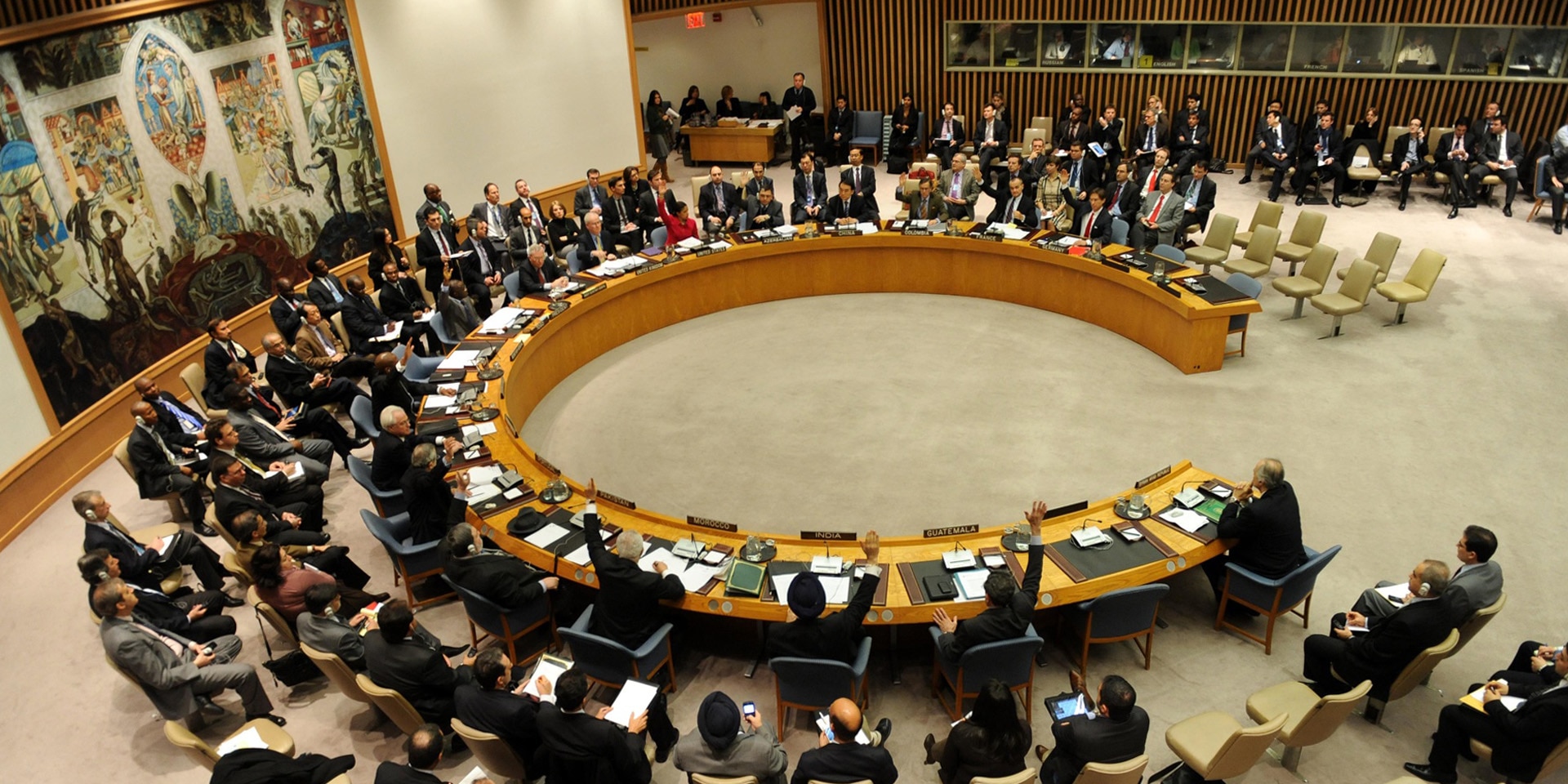Switzerland's presidency of the UN Security Council
In May 2023, Switzerland will hold the presidency of the UN Security Council. Switzerland's one-month presidency will allow it to put its thematic priorities of building sustainable peace and protecting civilians at the forefront and to give impetus to the Security Council's work. What does the presidency mean for Switzerland? We provide an overview of Switzerland's powers, practices and priorities during its month-long presidency of the Security Council.

In May 2023, Switzerland will hold the presidency of the Security Council. © Keystone
In May 2023, Switzerland will hold the presidency of the UN Security Council. This role is bound by rules. Its primary purpose is to ensure that Security Council business runs smoothly so that the council can take decisions. The members of the Security Council assume the presidency in turn, in the English alphabetical order of the names of the member states. In this capacity, the country holding the presidency of the Security Council chairs meetings and, if necessary, represents the council externally and before other UN bodies such as the General Assembly. Switzerland's one-month presidency will allow it to focus on its thematic priorities for its 2023–24 membership and to give impetus to the Security Council's work.
What powers does the Security Council president have?
In addition to conducting mandated meetings, the president convenes additional meetings depending on current world events and at the request of other member states. On 13 February 2023, for example, the Maltese presidency convened a closed meeting at the request of Switzerland and Brazil, shortly after the devastating earthquakes in Turkey. As co-penholders for the humanitarian dossier on Syria, Switzerland and Brazil had requested this meeting so that the Security Council could be informed about the emergency situation on the ground and consider whether measures were needed to ensure humanitarian access in the affected regions.
During the meetings, the president gives the floor to other members. As a rule, the Security Council first receives briefings from rapporteurs from the UN secretariat, other UN programmes or civil society representatives from the field. These briefings provide the council with a first-hand account of the situation regarding a specific conflict, which the council then debates.
In addition, the president makes statements to the media, for example after votes or other important decisions.
Priorities of the Swiss presidency
The country which holds the presidency plans the Security Council's programme of work for the respective month. The basis of the programme is to a large extent predetermined, namely by the necessary extension of mandates of UN peace missions or sanctions regimes established by the Security Council. The presidency may also organise its own meetings. Switzerland is planning two such flagship events in May which are directly related to its foreign policy profile and priorities. Federal Councillor Ignazio Cassis and President of the Confederation Alain Berset will chair the open debates. Federal Councillor Viola Amherd is also expected to chair a Security Council meeting on UN peace missions.
- Beginning of May: open debate on priority topic "building sustainable peace"
Mr Cassis will chair this debate at the beginning of May. The debate will seek to identify ways of strengthening the role of the Security Council, the UN and other actors in confidence-building and armed conflict prevention. In addition, the event will also serve to highlight the important contribution of International Geneva to the Security Council's work on peace and security. - End of May: open debate on priority topic "protecting civilians"
The UN secretary-general will present his annual report on protecting civilians to the Security Council in May. Mr Berset will chair this year's session on the topic, which will take place in the presence of UN Secretary-General Antonio Guterres and ICRC President Mirjana Spoljaric Egger. The open debate will focus on the impact of conflict on hunger among civilians and in particular the protection of civilian infrastructure for food production and distribution. - End of May: 75th anniversary of UN peacekeeping
In 1948, the UN Security Council sent its first peacekeeping mission, UNTSO, to maintain the ceasefire in the Middle East. Today, UNTSO is headed by Major General Patrick Gauchat of Switzerland. Ms Amherd is expected to speak on behalf of Switzerland in New York at the end of May to highlight the extraordinary achievements of the up to 100,000 UN peacekeepers who are deployed all over the world, working in dangerous conditions to prevent conflicts, protect civilians, promote political solutions and support democratic processes.
The tenth anniversary of the Swiss-led ACT Group also falls during Switzerland's one-month presidency. The aim of the group is, among other things, to strengthen the working methods of the Security Council. For example, the ACT Group works to ensure that current and future Security Council members do not vote against resolutions when it comes to cases of war crimes or crimes against humanity.



